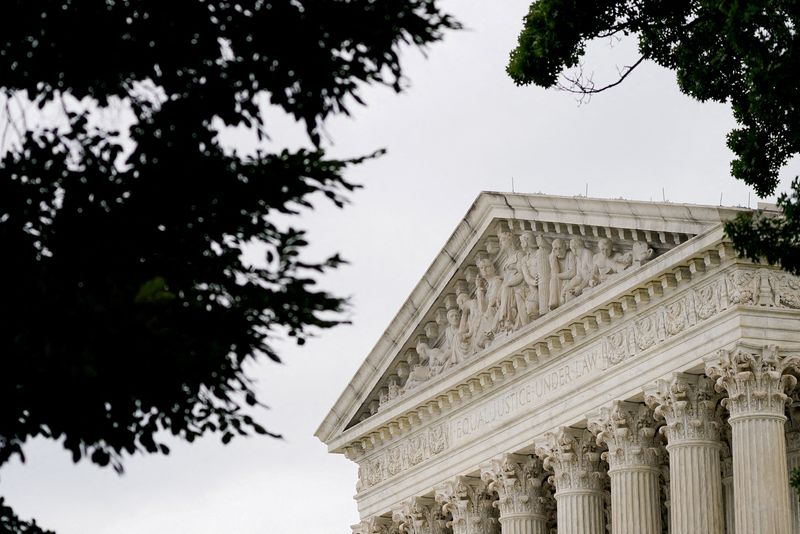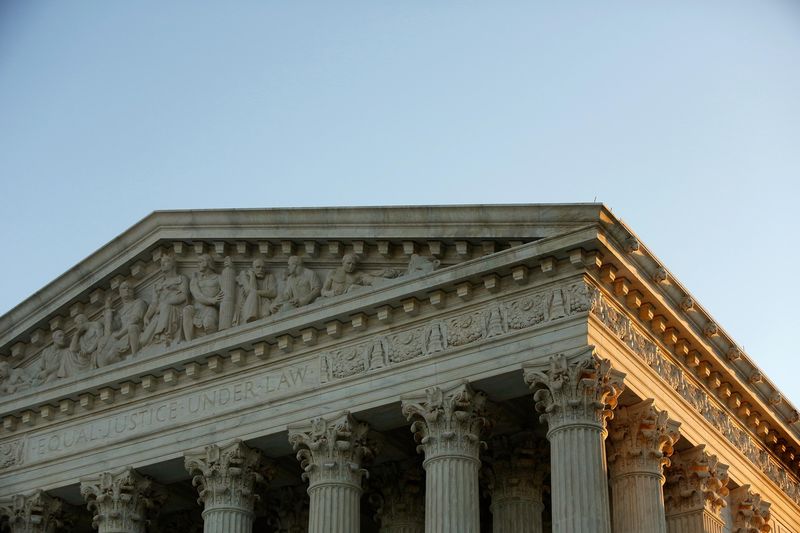By Gabriella Borter
(Reuters) - Sixty-two percent of Americans say race and ethnicity should not be considered at all in college admissions, according to new Reuters/Ipsos polling on policies at the center of high-profile cases before the U.S. Supreme Court this spring.
The public opinion poll, which surveyed 4,408 adults from Feb. 6-13, found that 73% of Republicans and 46% of Democrats said they were against race-conscious admissions, or affirmative action, which is a practice used by colleges and universities to boost racial diversity within their student bodies.
Sixty-seven percent of white respondents said they were against considering race at all in admissions, compared with 52% of minority respondents.
The conservative-leaning U.S. Supreme Court will issue rulings this spring in cases questioning the legality of race-conscious admissions practices at Harvard and the University of North Carolina (UNC).
Most Supreme Court justices signaled sympathy last year for the arguments made against affirmative action. The court's decisions could imperil the practices, which are used to boost enrollment of Black and Hispanic students at U.S. colleges.
The group behind the lawsuits, Students for Fair Admissions, says that UNC discriminates against white and Asian American applicants and that Harvard discriminates against Asian American applicants. The schools disagree.
The cases have given the court an opportunity to reverse precedents - one as recent as 2016 - that allowed schools to use race as a factor in admissions if other issues were also considered.
Harvard and UNC have said that race is only one of many factors in their admission processes and that curbing its consideration would cause a significant drop in enrollment of students from under-represented groups.
Proponents of affirmative action say taking race into account in college admissions is a necessary step to remedying racial inequity in American life and ensuring a range of perspectives on campuses. Critics say it unfairly boosts some minority applicants over other groups.
The president of Students for Fair Admissions declined to comment on the poll results.
In the Reuters/Ipsos survey, 46% of respondents said social policies such as affirmative action discriminated unfairly against white people. That view was held by 49% of white respondents and 39% of minority respondents.
While most poll respondents said they did not think college admissions offices should consider race at all, 58% of all respondents said they supported programs aimed at increasing racial diversity of students on college campuses. The poll question did not offer specific examples of such programs.
Jane Sujen Bock, a board member of Coalition for a Diverse Harvard, said the support for increasing campus racial diversity from 58% of respondents indicated that backing for affirmative action was broader than the poll's other responses reflected.
"That's exactly what affirmative action is" - just part of a process that ensured the accomplishments and potential of disadvantaged students were considered, Bock said.

Respondents also were asked how significantly other factors ought to play into college admissions. Sixty-eight percent said grades should be a major consideration. Fifty-six percent said candidates whose relatives had attended the school should not be given different consideration; similarly, 37% said athletic ability should be ignored.
The poll's credibility interval, a measure of precision, was about two percentage points for all respondents.
